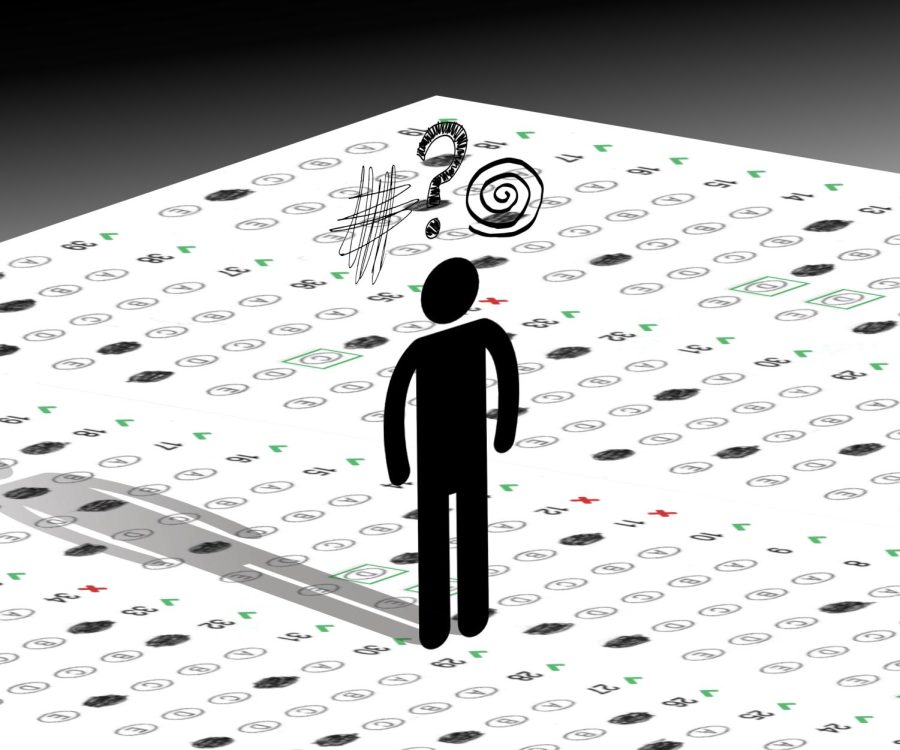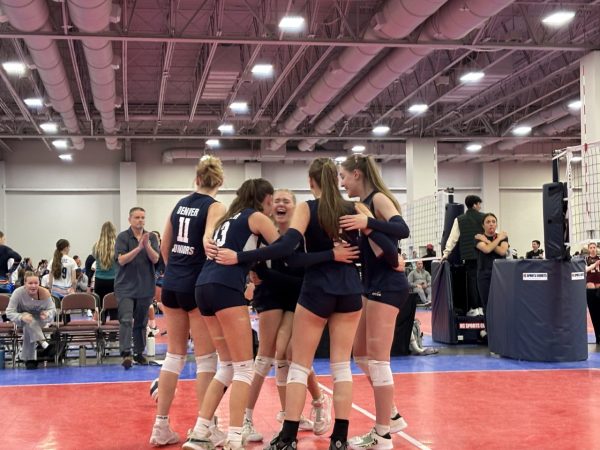AP Monopoly: Analyzing the College Board’s Stranglehold on American Education
AP test season has once again reared its ugly head, and the College Board’s arduous and dated exams leave many asking the same simple questions. What is College Board? What do they do? Do I have to do this?
AP test season, the SAT, and all manner of examinations are riddled with anxiety for those who take them, and futures often ride on the back of high performance in the testing environment.
Behind all the madness sits one corporation, the College Board, the sole proprietor of the most important tests any high schooler will take during their tenure.
The College Board held $1.6 billion in cash and assets in 2022. In the same year, over 1.7 million students took the SAT, of which about 140,000 used a fee waiver, which means that the College Board collected $60 from 1.56 Million students. That’s $93.6 million in revenue on the SAT alone.
Conservatively assuming half of those students have taken the PSAT at least once, which costs about $18 per student, that’s another $14.04 million. That brings us to a total of $107.64 million on the SAT suite, not including late fees, score-sending costs, or any of the minutiae associated with the logistics of taking the test. Additionally, nearly 4 million AP tests were taken this year. AP tests cost $97 in the United States. Assuming a similar proportion took fee waivers as the SAT (8.2%), College Board collected that payment on 3.67 million tests. $356 million. More than a third of a billion dollars was collected on AP tests alone, in one year.
Remember, these are the revenue numbers of a not-for-profit company. A company that paid out $1.9 million of those dollars to David Coleman, its CEO. A non-profit that has over $400 million in investments or stored capital overseas. This begs the question, is the College Board actually a not-for-profit organization?
It’s not unusual for not-for-profits to pull in eye-watering sums. The ASPCA, for instance, had $4.4 billion in gross revenue last year (they somehow managed to pay their CEO a million less than the College Board, though). The difference is that the ASPCA is transparent with how it spends its money. For every dollar donated, about 77 cents goes to helping animals, another 19 cents goes back into marketing and fundraising, and the remaining 4 cents goes to managerial expenses.
College Board’s tax data is available online but is not communicated or published by them. Their funding sources and spending are not clearly available. That’s because they aren’t a charity helping those in need or contributing to the public good. They are a company. A company being paid to perform a service.
A government-subsidized registered 501(c)3 that holds its finances close to the vest is certainly off-putting, but it gets worse. A Consumer Reports investigation found that the College Board was selling the data of the students that pay to take their tests. College Board is sharing the data of high schoolers with at least seven high-profile tech companies including Google, Meta, and Microsoft (This detail, oddly enough, isn’t included in their information use policy).
The most dangerous thing about College Board, though, is their monopoly. What if I wanted to fight against this system as an individual? You can’t. The SAT is required to graduate from high school in ten US states, including Colorado. As far as college admissions go, AP classes and tests are all but a prerequisite to even gaining entry to a quality institution.
The only potential competitor, the ACT, is unfortunately not accepted as a substitute in most cases. The ACT is a supplement, it’s the margarine to the SAT’s butter: nothing like the real thing. Besides, the ACT’s use is dwindling. The test’s sign-ups have dropped by 22% in the last 6 years, and are projected to decrease further. The SAT, on the other hand, saw a 200,000-test increase from 2021 to 2022.
This monopoly allows the Board to unilaterally act without fear of retribution because there’s nothing we can do about it, even if we disagree.
There are no systems in place to hold the Board accountable for misconduct. This is ensured by instituting rules about not talking to teachers or other students about test content, lest you be reported to the Office of Testing Integrity.
How is that fair? In the Board’s ideal AP test you walk into a testing facility (after paying $97), have the instructions read to you by a proctor, and take a multiple-choice exam for as much as an hour and a half in complete silence. Then you take a ten-minute water break and come back and take the FRQ portion of the test, usually another hour plus. After all of that, you come out of the test, which will never be administered again, and you’re not allowed to discuss whether or not the test was fair, or what kind of questions were on it. The point, of course, is to demonstrate your knowledge, but this doesn’t seem like an appropriate rule. It’s put in place so that you, the test taker, are stripped of your ability to argue or discuss their rulings.
The average score on an AP test in 2022 was 2.92, below a passing 3. The average score was a grade that is considered “not passing”. Imagine if well over half of a teacher’s students were failing out of a class. Does that onus get placed on students? No. If that many students are doing that poorly, it can’t be chalked up to a one-off or a bad teacher. There’s something else going wrong. The curriculum isn’t readying students for the tests. So who’s at fault? The College Board.
They do better when we do worse. AP classes are taken in order to get college credit. When you do poorly on the SAT or an AP test and have to retake it, you pay the College Board another $60-$100+. The more times you have to retake their tests the more money you have to give them. With that in mind, we can’t expect that they accurately ready you for a test, or that the test has been created with equitability in mind.
With the recent headlines about parents’ lack of input in their children’s education, we cannot continue to ignore the ever-tightening grip of a private company that administers all the most important high school exams. We have come to accept that we have no say.
How have we allowed a takeover of our educational system by a company that has a monetary interest in our failure? Complacency has gotten us where we are now, a rigid unwavering acceptance that things are the way they are because that’s how we’ve always done it, but that’s not how it has to be.
Take the ACT if you can, look into IB programs instead of AP classes, and if there are no other options, do the best you can at the AP tests. The better you do the less of your money you have to give up to the College Board.










